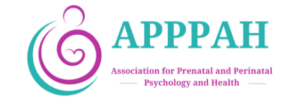Autism is currently occurring in one in 10,000 children in Europe. The incidence in the US has been steadily increasing over the last years to a figure at least 4 times as high. It has become an issue of primary importance for modern society. Oxytocin is a hormone produced by the body, which is released in the posterior pituitary gland and controls a number of bodily functions. However, since the 90’s, its psychoactive component is being investigated and is becoming very meaningful in diagnosis and therapy of both psychiatry and psychology. Since the 60’s synthetic oxytocin has been used in Gynecology to induce labor. This article has emerged from over a decade of working with new-born babies and adolescents. The thesis herein is that the use of synthetic oxytocin in childbirth can have consequences for the psyche of the child, for the important time after the birth, and for the remainder of life. Its use should, therefore, be carefully considered. Typical features of the autism spectrum disorders contain characteristics of disturbance of the oxytocin system in the body. In the USA almost 80% of all births are set under influence of synthetic oxytocin. Through the course of the years, the author has devised a treatment for the affected children and adults, and consequently clarified its principles. The author is of the opinion that early disturbance of the innate oxytocin system may be a factor in the etiology of many cases of autism. Key Words: Synthetic oxytocin, oxytocin, perinatal, autism, isopathy
